Credibility is crucial when it comes to writing (and building a brand).
As a writer, you want your audience to trust and believe the information you are offering.
Building credibility not only helps establish a strong relationship with your readers but also makes them want more of your content.
Do you want to know how?
Here are eight tips that can help you achieve this goal.
Contents:
What Is Credibility in Writing?
Credibility refers to the trust and belief your audience has in the information you provide. It’s all about being reliable, relevant, and accurate.
In other words, it is the perception of your readers towards your expertise, knowledge, and honesty.
A credible writer is someone who can offer reliable information that is accurate and unbiased.
And think about it.
If people cite you as a source, it means they trust the information you provide.
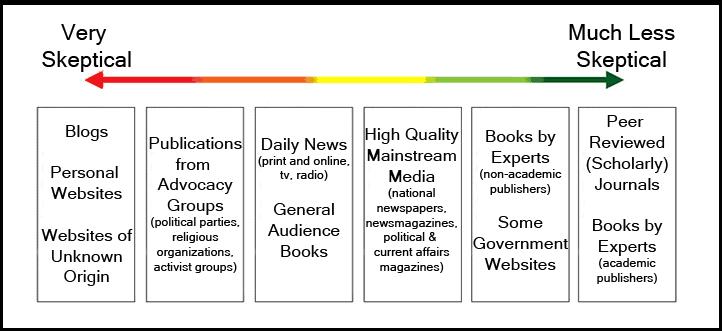
Why Is Credibility Important in Writing?
Credibility is important in writing for several reasons.
First, it helps establish trust with your audience.
When your readers trust you, they are more likely to read your work and take the information you provide seriously. This can also lead to them sharing your content with others, which can help increase your reach and impact.
Secondly, credibility gives you authority as a writer.
When you have credibility, people see you as an expert in your field and are more likely to listen to what you have to say. This can open up opportunities for collaborations, guest posts, and other professional relationships that can benefit your business.
Lastly, credibility helps maintain a good reputation.
If your readers trust you and find your content reliable, they are less likely to question your integrity in the future. This can help you build a loyal audience and establish your name as reputable in your industry.
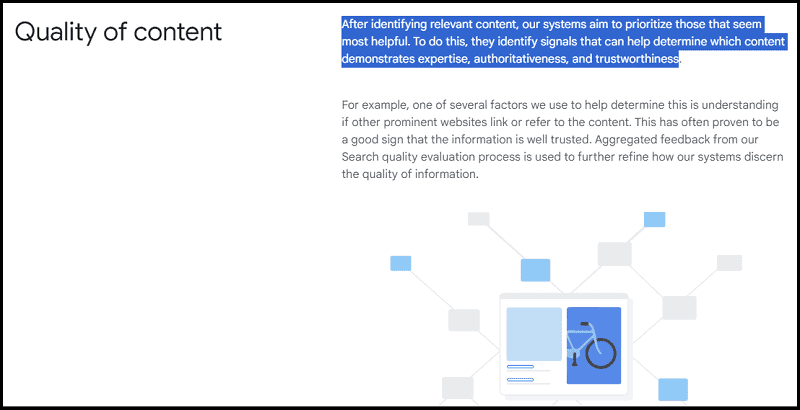
The concept is pretty correlated to the principles of experience, expertise, authoritativeness, and trustworthiness that Google uses to assess content quality.
Examples of Credibility in Writing
To better understand credibility in writing, let’s look at some examples.
Take the news, for instance.
When you read a news article from a reputable source like The New York Times, you are more likely to believe the information presented because the publication has built its name on accuracy and trustworthiness.
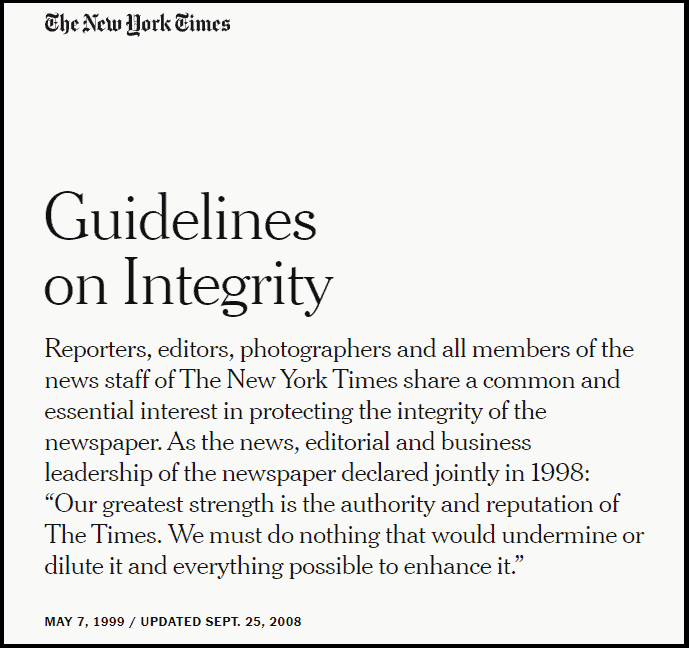
On the other hand, if you come across a news article from an unknown source that is not well-known for its credibility, you may question the validity of the information.
Similarly in the SEO industry, websites like Search Engine Journal, Ahrefs, and Moz, which have established their authority in the field, are more likely to be considered credible sources of information compared to a small blog of a newbie.
OK, I know what you’re thinking.
What if I have to evaluate a source that I am not familiar with?
The Community College of Spokane has created the CRAAP system (adapted from the CRAP test developed by Librarian Molly Beestrum, Dominican University).
In each section, there’s a list of questions that help you evaluate whether the source can be considered as trusted.
Similarly, the University of West of Scotland has created an evaluation tool, called “TRAAP” (Timeframe, Relevance, Authority, Accuracy, and Purpose).
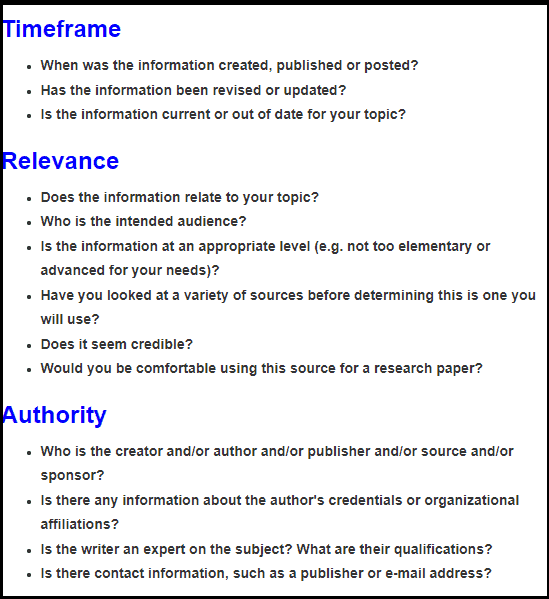
As you can note, the concepts and questions are closely related to the ones provided by Google to self-evaluate how to create helpful, reliable, people-first content.
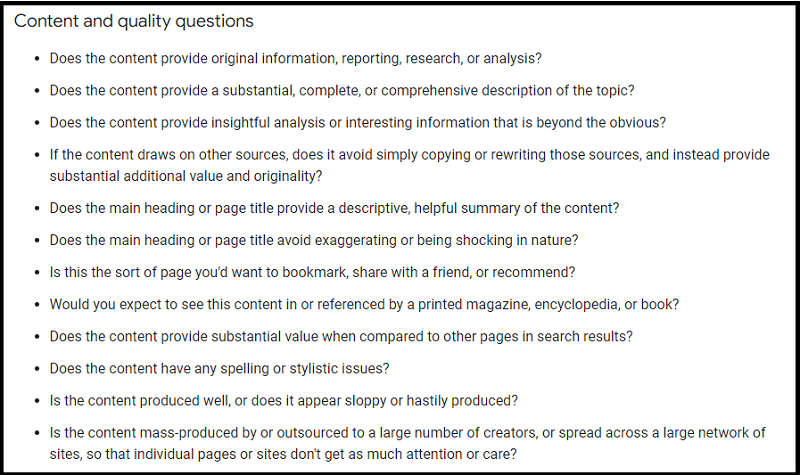
8 Tips to Establish Credibility in Writing
Follow these tips to improve trust and credibility in your writing:
- Show Experience and Knowledge
- Be Honest and Sincere
- Avoid Spelling and Grammar Mistakes
- Reference and Cite Sources
- Be Useful and Relevant
- Provide Updated Information
- Keep Your Promise
- Be Consistent
Let’s look into each in detail.
1. Show Experience and Knowledge
Demonstrate your experience and knowledge in your writing.
You can mention past work, certifications, degrees, or any other relevant achievements. This helps establish you as an expert and builds trust with your audience.
Also, sharing personal stories and experiences can be a powerful way to connect with your audience. By demonstrating firsthand knowledge, you can create a connection. And when your audience can relate to your story, they are more likely to believe in your expertise on the subject.
For example, if you’re writing about content marketing strategies, mention the results you have achieved for clients or any courses you have taken to further enhance your skills.
Based on my experience, if I were writing about guest posting, I could refer to the many publications I have written for, so far:
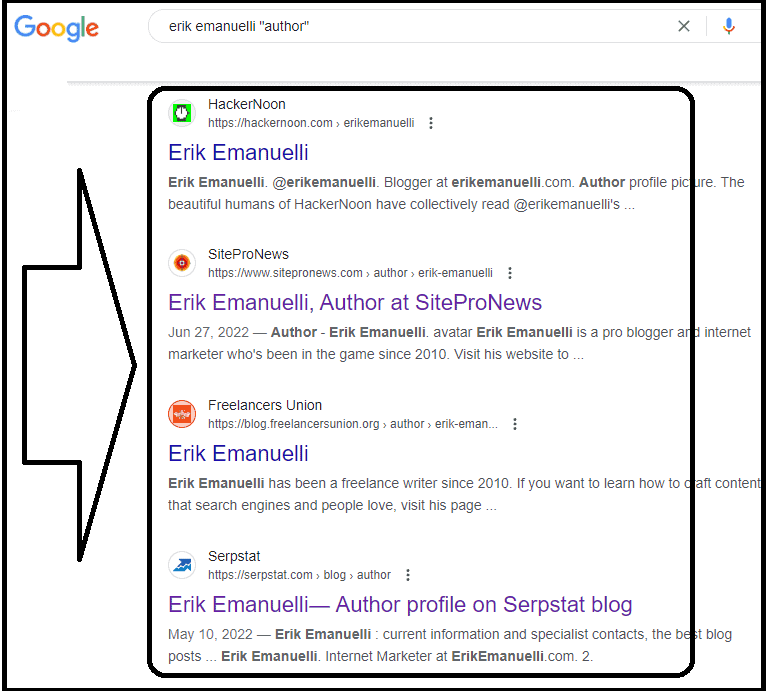
2. Be Honest and Sincere
Honesty is key to gaining credibility with your audience.
Be open about your intentions and avoid exaggerating or manipulating facts.
Transparency is crucial in building trust, so be sincere in your writing.
If you’re promoting a product or service, don’t oversell it. Instead, share the honest benefits and drawbacks.
Your audience will appreciate your honesty and be more likely to trust your recommendations.
For example, when I talked about page speed and WordPress optimized hosting, I recommended WP Engine, because it is the best service I’ve tried in blogging since 2010.
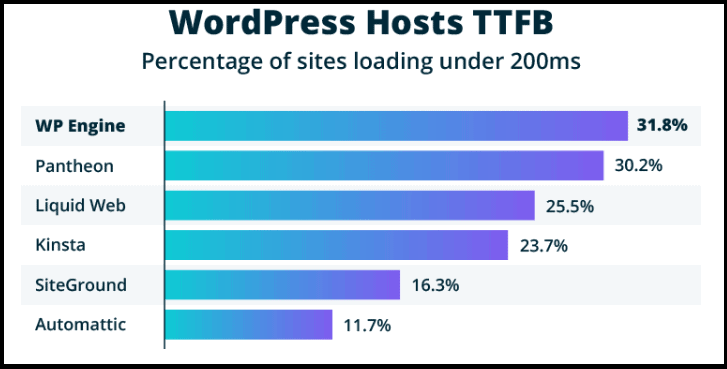
3. Avoid Spelling and Grammar Mistakes
Spelling and grammar mistakes can significantly affect your credibility.
Not only do they make your writing appear unprofessional, but they can also cause confusion and misinterpretation of information.
Always proofread your work before publishing it or consider using tools like Grammarly to catch any errors.

4. Reference and Cite Sources
Referencing and citing sources is crucial for establishing credibility in your writing.
It shows that you have done your research and are using reliable information to support your arguments.
Always provide proper citations for any data, statistics, or quotes you use in your writing. This not only adds credibility but also avoids any potential legal issues related to plagiarism.
For example, in my post about SEO meta tags, I mention the Ahrefs study stating that 33.4% of the time, Google changes or edits the titles.
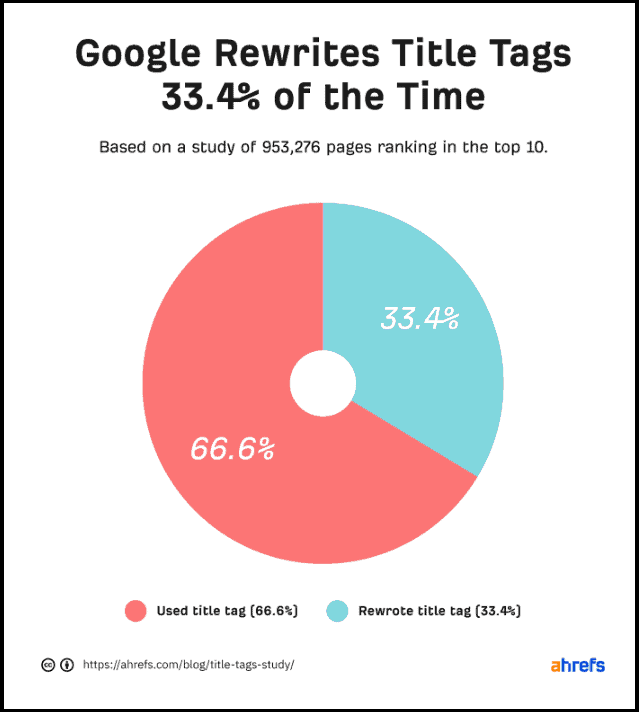
5. Be Useful and Relevant
Your writing should provide value to your audience and be relevant to their interests.
If your content is not useful or related to what they are looking for, it can damage your credibility.
Understand your audience’s needs and preferences, and create content that meets those needs. This shows that you are knowledgeable about your audience and are focused on providing valuable information to them.
This is closely related to the concept of topical authority, where your expertise and knowledge on a specific topic are also recognized by search engines, resulting in higher rankings for your content.
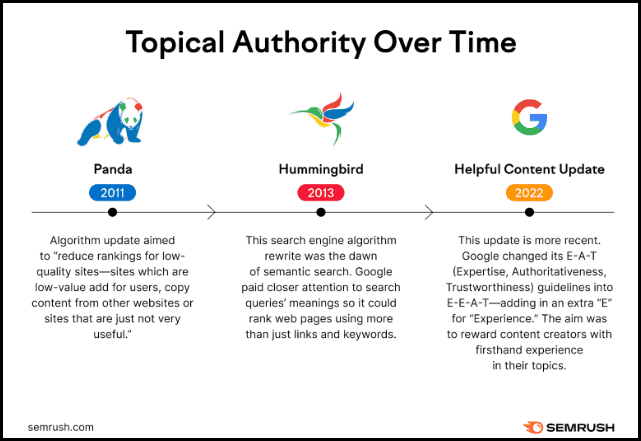
6. Provide Updated Information
Outdated information can harm your credibility.
Always make sure to provide the most recent and accurate information in your writing. This shows that you are actively keeping up with industry changes and trends.
For example, if you’re writing about Google guidelines, you should provide the latest version, which is called “Search Essentials“.
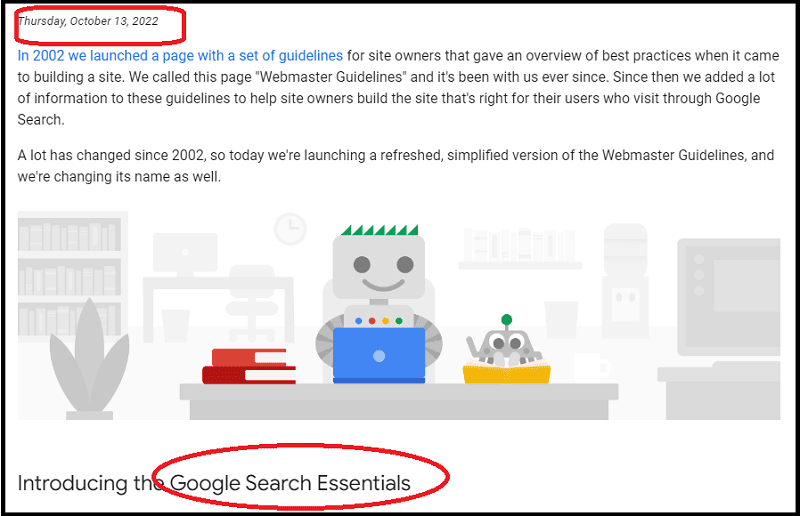
7. Keep Your Promise
Your audience trusts you to deliver on your promises, so make sure to keep them.
If you make a claim or promise in your writing, be sure to back it up with evidence and follow through on it.
For example, if at the beginning of an article, you promise to provide a step-by-step guide on a specific topic, make sure to deliver that in your content.
In my post about earned links, I give 3 examples and the exact four steps I used to get links from Moz and Ahrefs:
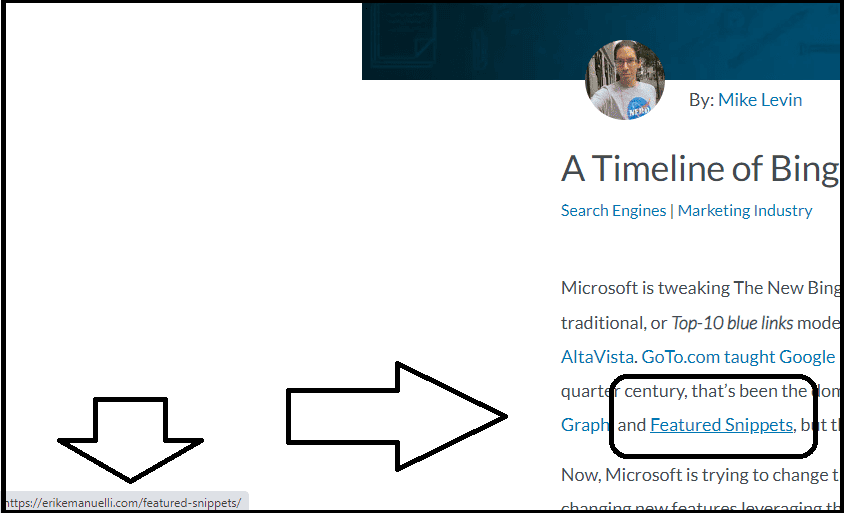
8. Be Consistent
Consistency is key to building trust and credibility with your audience.
Whether it’s in the tone of your writing, the frequency of publishing content, or providing accurate information, consistency is what makes your audience believe in you.
If you are inconsistent in any aspect of your writing, it can raise doubts and questions about your credibility.
Stay true to your brand’s voice and style, and make sure to fact-check all information before publishing.
Before You Go
Do I have your trust now that you have read so far?
If so, you can’t miss to read these related articles:
Now, it’s over to you.
In your opinion, how can you build credibility in writing?
Please share your views in the comments below, thanks!

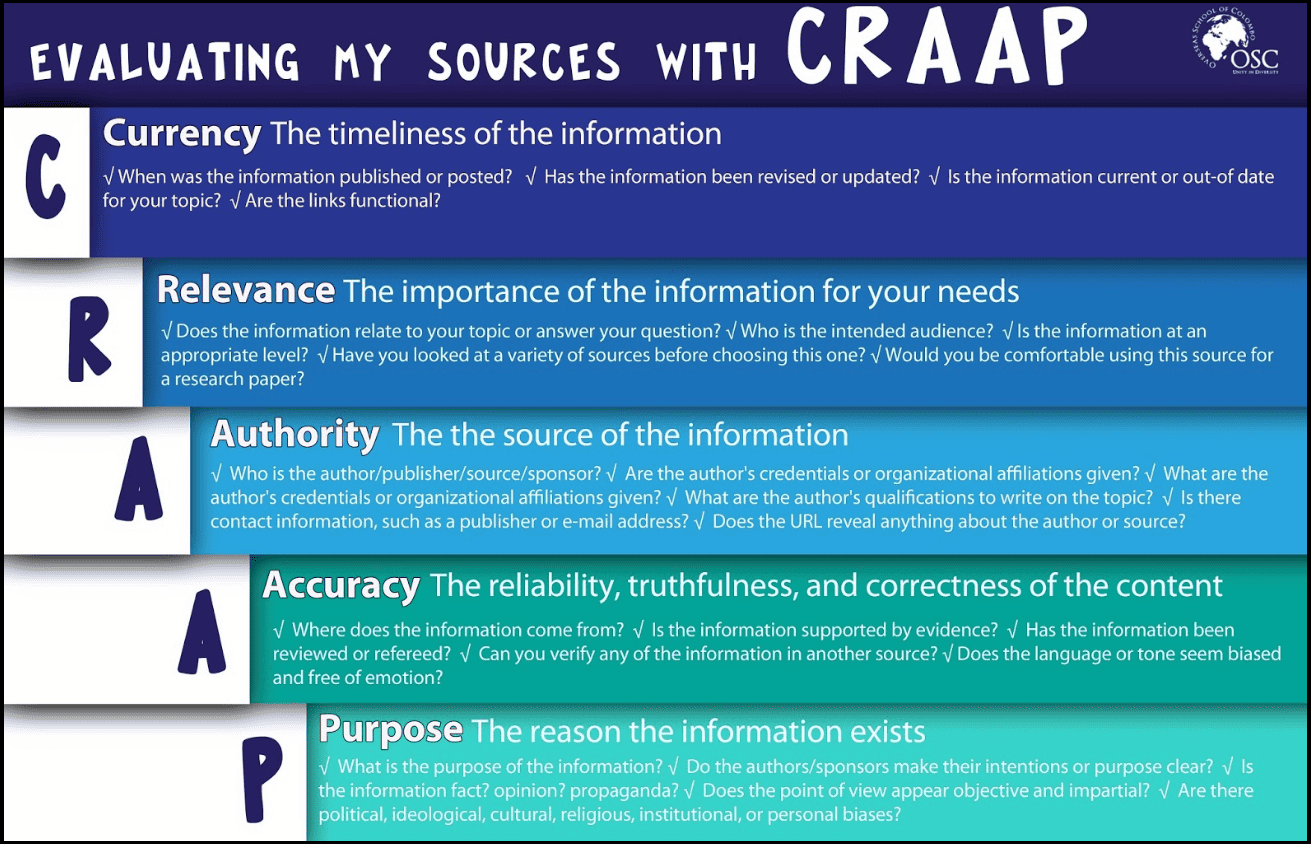
Hello, Erik,
Content plays an important role in building credibility. A well-written content with a friendly tone can be very helpful to connect with your readers. Consistency is also an important factor in keeping your blog alive. Thanks for sharing these helpful tips.
Regards,
Vishwajeet Kumar
Hi Vishwajeet,
glad you liked the article.
Thanks for sharing your views here.
Erik, this is a well-thought-out post. I really love the breakdown of each point, especially the building up of authority over time.
But it seems to me, however, that most readers would rather go with the brands they’ve trusted over the years than with you, who’s trying to build authority slowly.
I hope this is something we can overcome soon as bloggers.
If it would be so easy, then everyone could do it, right?
Love this article!
We’re in such an interesting time re: authority, credibility, and the like, especially in the online space. Bloggers expect authority without having to build it and, unfortunately, a lot of consumers give authority not to those who have it, but to those who agree with them.
From my experience, the building of legitimate credibility online is a longer process than most expect, but putting in the time toward things like authenticity, sources, and others you mentioned is a solid strategy that works well over time.
Hi Alyssa,
that’s right. And it’s rewarding when you start to build credibility, such as a Google Knowledge Panel, for example:
https://erikemanuelli.com/google-knowledge-panel/
This is such a thorough, well thought out article! Super easy to follow and answered my questions. Thanks!
Thank you, Hannah! 🙂
This article really highlights the importance of credibility in writing! It’s so true that building trust with an audience is essential, especially in a world where readers are more discerning than ever. Tips like backing up claims with reliable sources and maintaining a consistent voice are spot-on and incredibly useful. Thank you for the practical advice—this is definitely a resource I’ll keep coming back to for refining my own writing!
Hi Erik,
Being honest and sincere goes a long way in earning credibility.
Readers want truthful people. Blogging genuinely makes one attractive in a world where directness seems greatly appreciated. I intend to write how I speak; plain, to the point and even blunt at times. But I am so because I respect my readers; this gives me credibility in their eyes.
Excellent post.
Ryan